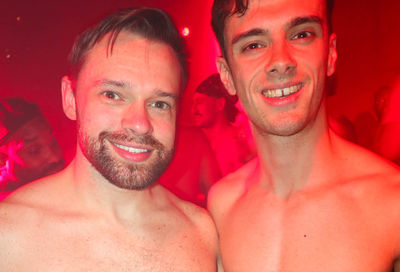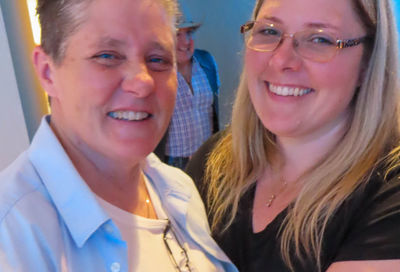Wretched Excess
Baz Luhrmann tromps across Fitzgerald's ''The Great Gatsby,'' all too eager to interpret subtle tension as over-the-top melodrama
What kind of maniac tries to adapt The Great Gatsby? Few books are legitimate touchstones in American culture, and for better or for worse, F. Scott Fitzgerald’s sits atop that very short list. It’s a perennial bestseller and a staple of high school English classes across the country, and yet in all of its years, it hasn’t spawned a single decent movie. The Great American Novel can’t seem to inspire The Great American Film.
Despite director Baz Luhrmann’s manic attempt to will Fitzgerald’s words to screen, The Great Gatsby (in 3D!) has about as much success fulfilling that wish as its titular, tragic hero does with his own. Both desperately try to recreate a beautiful thing of the past, but only in Luhrmann’s case does failure feel so bloodless and forged. Gatsby meets a tragic end, shot dead in a pool after being abandoned by the love of his life. Luhrmann merely leaves us with a glittery, three-dimensional proscenium and a Jay-Z soundtrack.

The Great Gatsby
Still, it’s worth noting the ambition of Luhrmann’s garish expressionism. After stumbling through a dizzy parade of scenery — and I do literally mean dizzy, thanks to a nauseating mix of forced-focus 3D projection and a moving camera — the film jolts to life when it reaches its first party scene. It’s Luhrmann at his finest, a bacchanalian absurdity soaked in Champagne and a heavy bass line. He’s conjuring an anachronistic sense of overindulgence, tempting us to enjoy the gaudy sort of high society that Fitzgerald aimed to tear down. The only problem? Every party looks like a hell of a time, and The Great Gatsby never seethes with the emotional heft it needs to prove otherwise. Luhrmann’s work is as thin as what the people he’s trying to criticize.
We’re thrust into these drunken orgies alongside Nick Carraway (Tobey Maguire), an amateur writer who comes to New York hoping to make his fortune on the bonds market. He’s within spitting distance of old money thanks to his posh cousin, Daisy Buchanan (Carey Mulligan), and her pompous, disloyal husband Tom (Joel Edgerton). Not that they hold his attention for too long — the man who whisks Nick into bright, loud revelry is the ludicrously rich Jay Gatsby (Leonardo DiCaprio). Every night, Gatsby’s mansion gleams from lavish, expensive parties meant to attract Daisy’s attention. With Nick’s help, the star-crossed lovers eventually meet, setting off an affair that slowly burns away to tragedy.
In other words, The Great Gatsby tends to stick closely to Fitzgerald’s story. Each departure from the novel, however, is significantly confounding. Nick is stripped of his (oft-contested) sexuality and thrown in a sanitarium, for reasons never explained. Mulligan plays Daisy as a severely wounded bird, not a conflicted woman capable of her own agency. This change emphasizes how she’s controlled by the men who love her, but only at the expense of a deeper truth. We’re never shown her poisonous desire for elite life, and because of it, we never realize she’s no better a person than her husband.
Nonetheless, it’s a small pleasure that Edgerton plays Tom so well. His scenes against DiCaprio are the highlight of this movie, if only because they capture the only moments of tension in a two-plus hour epic that rarely has any. Once Gatsby appears, DiCaprio’s boyish charm shines through the dullness — but it’s not until he faces off against Edgerton that The Great Gastby even begins to approach conflict.


Starring Leonardo DiCaprio, Tobey Maguire, Carey Mulligan
Rated PG-13
143 minutes
Opens Friday
Area theaters
With rare exception, the cast is too tentative with Fitzgerald’s material, acting as if they’re carrying precious, fragile cargo. They tiptoe more often than they need, while Luhrmann tromps across Fitzgerald’s novel, all too eager to interpret subtle tension as over-the-top melodrama. The result is a peculiar sort of adaptation — it looks right, but it doesn’t pass the smell test. This isn’t The Great Gatsby. This is Moulin Rouge in the Jazz Age.
Support Metro Weekly’s Journalism
These are challenging times for news organizations. And yet it’s crucial we stay active and provide vital resources and information to both our local readers and the world. So won’t you please take a moment and consider supporting Metro Weekly with a membership? For as little as $5 a month, you can help ensure Metro Weekly magazine and MetroWeekly.com remain free, viable resources as we provide the best, most diverse, culturally-resonant LGBTQ coverage in both the D.C. region and around the world. Memberships come with exclusive perks and discounts, your own personal digital delivery of each week’s magazine (and an archive), access to our Member's Lounge when it launches this fall, and exclusive members-only items like Metro Weekly Membership Mugs and Tote Bags! Check out all our membership levels here and please join us today!




















